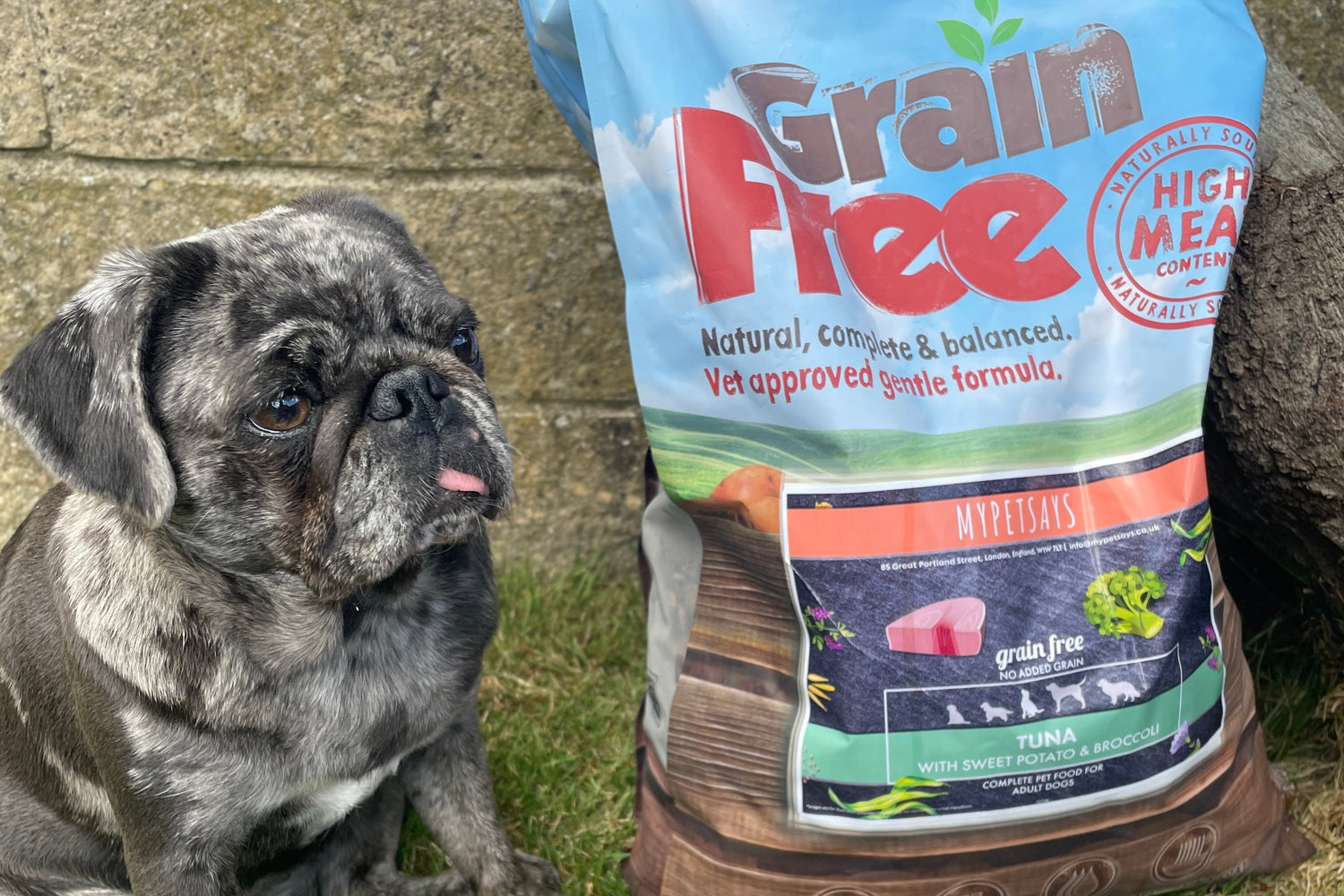A key aspect of dogs' well-being lies in their diet and one nutrient that plays a crucial role in promoting their overall health is Omega-3 fatty acids. In this blog post, we will delve into the significance of Omega-3 fatty acids in your dog's diet, their sources and the benefits they bring to your pooch's life.
Sources of Omega-3 Fatty Acids
Fish
Fatty fish like salmon, trout, sardines and tuna are rich sources of Omega-3s. Incorporating dog food with fish into your dog's diet can provide a convenient means to ensure they receive sufficient Omega-3 intake.
Algae Oil
For dogs with seafood allergies or those following a plant-based diet, algal oil is a fantastic alternative. It contains DHA derived from algae, making it a safe and eco-friendly option.
Flaxseed
Flaxseed is a plant-based source of dietary Fibre and Omega-3 Fatty Acids, which can be beneficial for dogs, especially when fish-based options are not feasible. We’ve added flaxseeds to our Superfood 65 Adult Dog Italian Buffalo, Lamb & Beef recipe.
How to ensure your dog gets enough Omega-3s?
Dog Food
Check out MyPetSays high-quality dog foods that contain Omega-3 fatty acids. These specialised formulas are balanced to provide the right amount of nutrients for your dog.
Fish Oil Supplements
Fish oil is an easy and natural way to boost your dog’s Omega-3s intake. HoliPaw Omega Boost offers a high-strength formula specifically tailored for dogs and approved by vets, combining essential Omega-3 fatty acids (EPA and DHA) with antioxidant Vitamin E. With 810mg of EPA and 540mg of DHA per 5ml, this natural supplement helps ensure your dog hits the daily recommended intake and supports their overall health.
Homemade Treats
You can create tasty homemade treats using fish-based ingredients or flaxseed oil as a healthy alternative to store-bought options.
The benefits of Omega-3 Fatty Acids
Promotes healthy skin and coat
Omega-3s help maintain the integrity of your dog's skin, reducing itchiness, dryness and hot spots. Additionally, they contribute to a lustrous and shiny coat, a clear indicator of good overall health.
Supports joint health
Dogs, especially senior or large breeds, can experience joint issues over time. Omega-3s possess anti-inflammatory properties, which may help reduce joint pain and inflammation, enhancing mobility and overall comfort.
Enhances cognitive function
DHA, a crucial component of brain tissue, plays a vital role in cognitive function. Regular consumption of Omega-3s may support brain health, especially in ageing dogs, potentially reducing the risk of cognitive decline.
Boosts heart health
Omega-3s are associated with cardiovascular benefits, such as regulating blood pressure and reducing the risk of heart disease. Including them in your dog's diet can help maintain a healthy heart.
Supports the immune system
A strong immune system is vital for your dog's ability to fight off infections and illnesses. Omega-3 fatty acids can bolster the immune response, keeping your pooch healthier and more resilient.
Reduces inflammation
Omega-3s are known to have anti-inflammatory properties, making them beneficial in managing inflammatory conditions like allergies and arthritis in dogs.
Omega-3 fatty acids are an essential component of a well-rounded diet for your dog. From promoting healthy skin and coat to supporting joint health and cognitive function, these beneficial fats play a significant role in your dog's overall well-being. Remember, your vet can guide you on the best approach to ensure your dog's nutritional needs are met, tailoring their diet for optimum health.
Photo by @pekey_puggers




Leave a comment
This site is protected by hCaptcha and the hCaptcha Privacy Policy and Terms of Service apply.